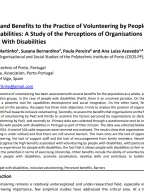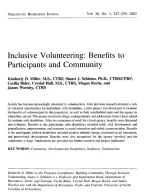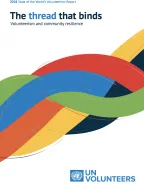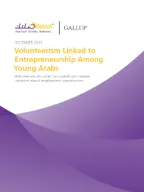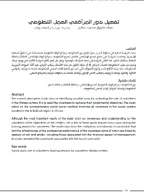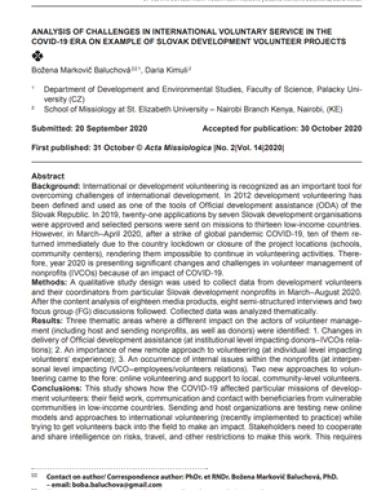
Technical paper
Analysis of challenges in International voluntary service in the COVID-19 era on example of Slovak development volunteer projects
South-South Cooperation and Volunteering
Download
- This paper analyzes the immediate impact of the global COVID-19 pandemic on Slovak development volunteers and their projects abroad. Qualitative research methods were used to collect data in Slovakia between March and August 2020.
- The study shows how the pandemic affected the work of volunteers, in particular field work, communication and contact with beneficiaries from vulnerable communities in low-income countries.
- The analysis of data that was gathered through qualitative research methods (content analysis of eighteen media products, eight semi-structured interviews and two focus group discussions with volunteers, as well as their coordinators from particular nonprofits) identified three thematic areas where the immediate impacts of COVID-19 on the actors of volunteer management (including host and sending non-profit organizations, as well as donors) were the most significant:
- 1. Changes in delivery of official development assistance (at institutional level impacting the relations between donors and non-profit organizations; 2. The importance of a new remote approach to volunteering (at individual level impacting volunteers’ experience); 3. An occurrence of internal issues within non-profit organizations (at interpersonal level impacting employees/volunteer relations).
- Two new approaches to volunteering came to the fore: online volunteering and support to local, community-level volunteers. Host and sending organizations are testing new online models and approaches to international volunteering, while trying to get volunteers back into the field to make an impact.
- Recommendations include the need for stakeholders to cooperate and share intelligence on risks, travel, and other restrictions. This requires continuous collection, monitoring and comparison of up-to-date empirical research results in the field of international volunteering in the light of constant updates on prevention and elimination of the COVID-19 pandemic.













